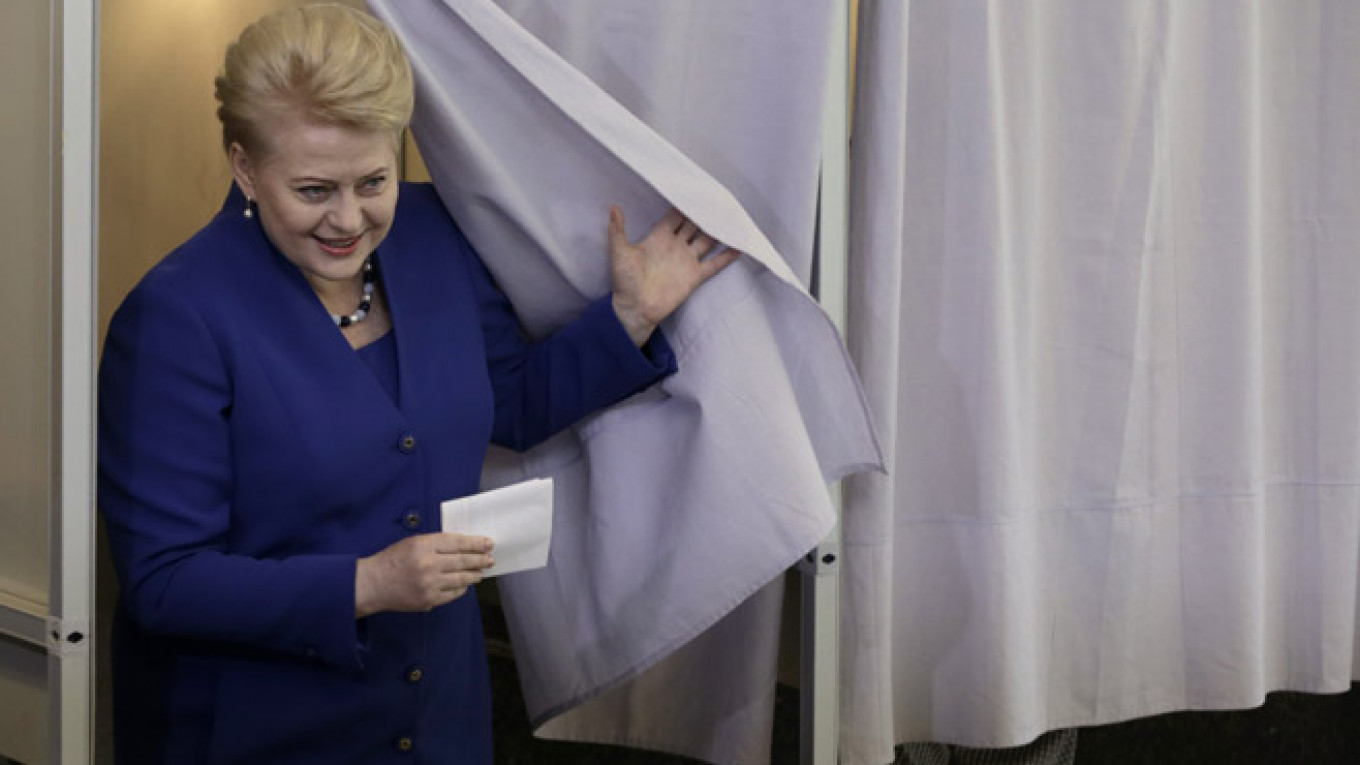Lithuanian President Dalia Grybauskaite has won a second consecutive presidential term for the first time in the country's history, with her anti-Russian platform striking a chord with voters.
Grybauskaite, a 58-year-old former European budget commissioner and former minister of finance, won 57.9 percent of the votes in the nation of 3 million on Sunday, the electoral commission said. Zigmantas Balcytis, a social democrat supported by Prime Minister Algirdas Butkevicius, scored 40.1 percent.
Escalating tensions with Russia are likely to define Grybauskaite's second five-year term, just as financial austerity was the hallmark of her first term, which started in 2009, the year Lithuania's economy shrank by 15 percent.
Fears are growing that Russia will try to destabilize the Baltic states of Lithuania, Latvia and Estonia — all members of NATO and the European Union — which have small armed forces and Russian speaking minorities.
Grybauskaite wants the government to give more money to the army immediately, even if it needs to relax budget discipline and borrow more. "We are in a vortex of threats today," she said during presidential debates last week.
About 150 U.S. troops were sent to each of the Baltic states and Poland this year to reassure them that their NATO ally is taking its security commitments seriously — the first permanent deployment of foreign troops on Lithuanian soil since 1993.
"Keeping Lithuanian foreign and defense policy strong and on track will be the big challenge for the president," Kestutis Girnius, associate professor at the Institute of International Relations and Political Science, said.
"The fact that she won so strongly, while the social democrats appeared weak in recent European Parliament elections means that she will have an upper hand in her relationship with the government," Girnius said.
The president holds considerable power in Lithuania, appointing government ministers, judges, and the Central Bank chief as well as Lithuania's member of the European Commission, needing approval from the prime minister or parliament for most.
Grybauskaite's tough stance will be supported by the Independence liquefied natural gas terminal starting imports next year, breaking Lithuania's total dependence on Russian gas. She has called the dependence on Russian gas an "existential threat" to the republic.
Lithuania pays one of the highest prices for natural gas in the European Union, and about 20 percent more than its neighbors, which are similarly dependent on Russia.
A Message from The Moscow Times:
Dear readers,
We are facing unprecedented challenges. Russia's Prosecutor General's Office has designated The Moscow Times as an "undesirable" organization, criminalizing our work and putting our staff at risk of prosecution. This follows our earlier unjust labeling as a "foreign agent."
These actions are direct attempts to silence independent journalism in Russia. The authorities claim our work "discredits the decisions of the Russian leadership." We see things differently: we strive to provide accurate, unbiased reporting on Russia.
We, the journalists of The Moscow Times, refuse to be silenced. But to continue our work, we need your help.
Your support, no matter how small, makes a world of difference. If you can, please support us monthly starting from just $2. It's quick to set up, and every contribution makes a significant impact.
By supporting The Moscow Times, you're defending open, independent journalism in the face of repression. Thank you for standing with us.
Remind me later.






